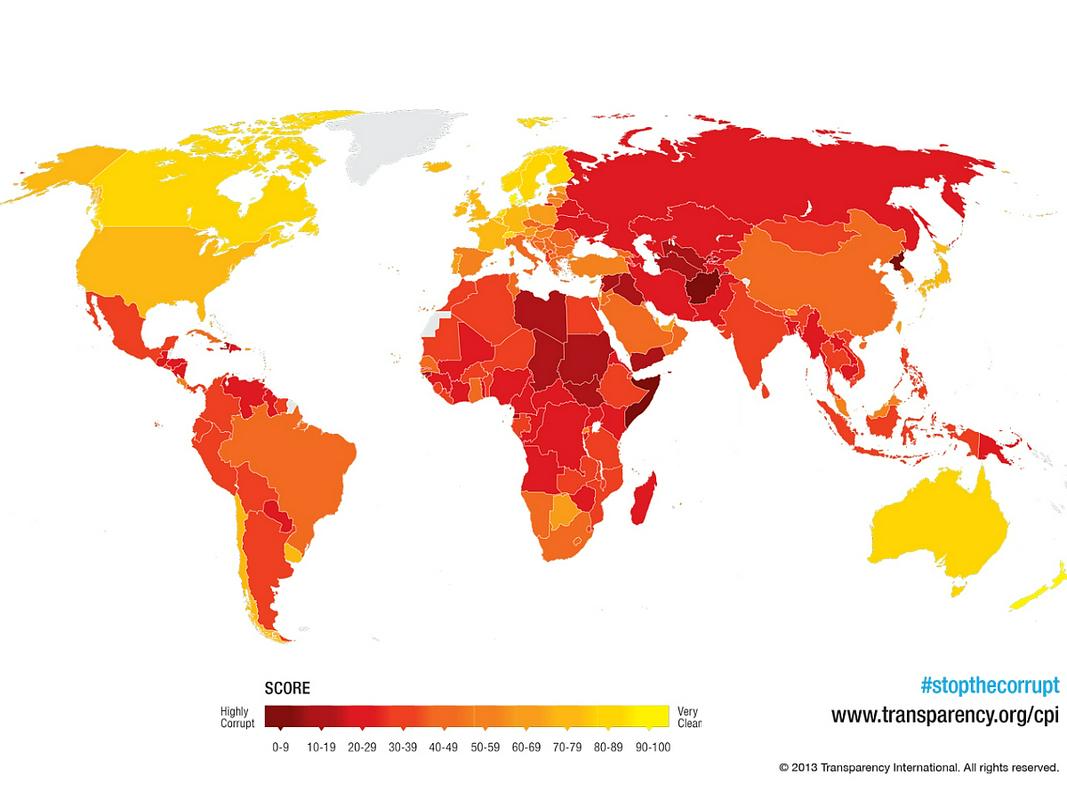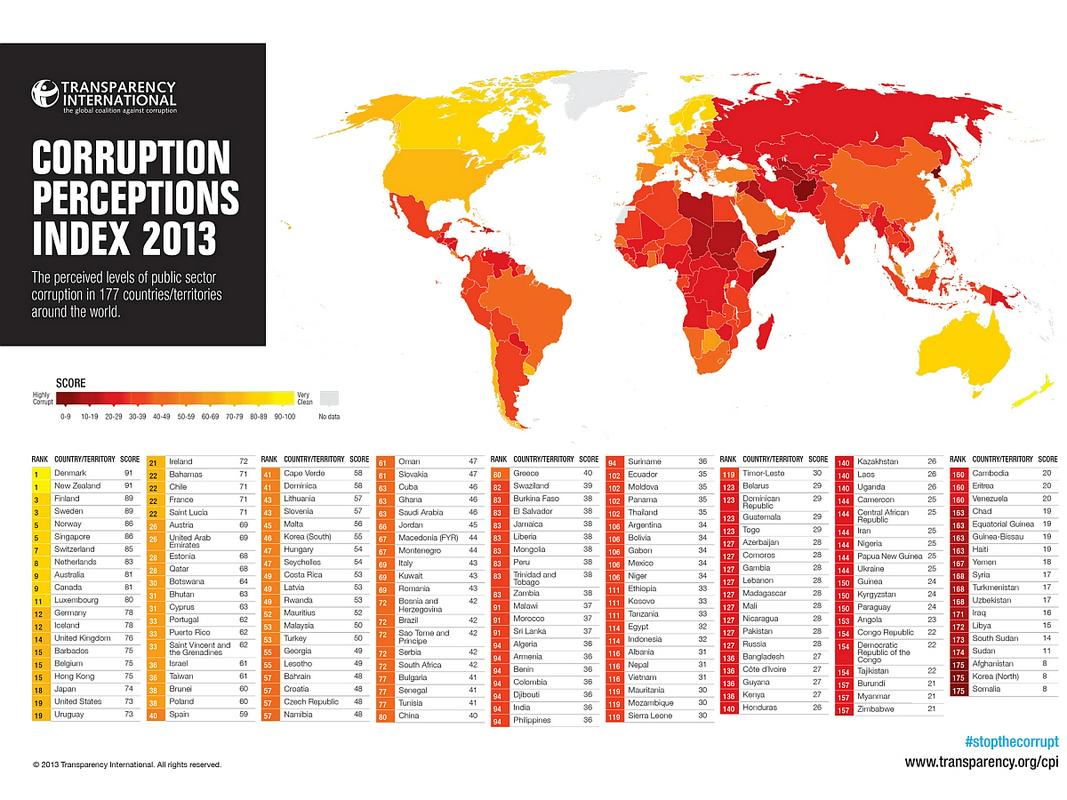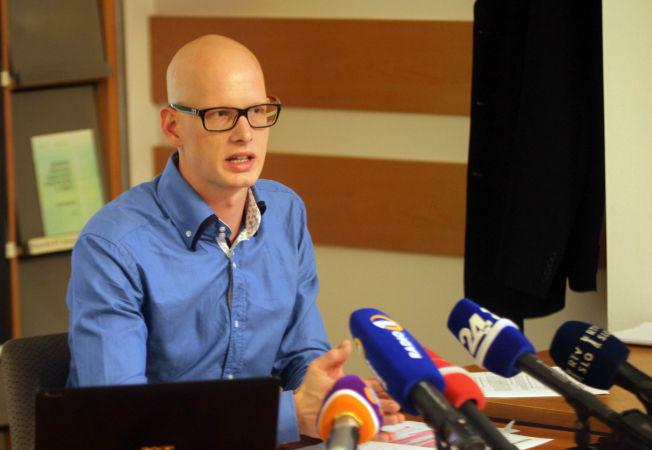

This year's report is a clear warning for the government and politicians that problems cannot be solved with "ignorance and shifting responsibility on to others". Referring to Slovenia, Transparency International also wrote that a system for the integrity of political parties and transparency is still to be established.
Slovenia fell by six spots in the corruption perception index ranking for 2013. From being 37th it is now 43rd. Among the 177 surveyed countries Slovenia was given a score of 57, with 0 considered most corruptive and countries given 100 considered "very clean" states.
The score is 4 points poorer compared to 2012. It puts Slovenia in the group of world countries that recorded the biggest drop.
"Political parties are one of the key pillars of democracy. Without them there is no democracy. That's why it is all the more incomprehensible why politicians and decision-makers avoid cutting off their secret ties with different interest groups and lobbyists. Their personal interests are obviously too big," says the Secretary General of Transparency International Slovenia Vid Doria.
The index records the level of corruption in the public sector. The findings are based on perceived levels of corruption among business representatives and analysts.
According to the group the results show that those countries which stimulate transparency and responsibility are more successful in eliminating corruption. It also judges that open and transparent work is still feared in Slovenia and that there is still no political will for systemic solutions.
The work of those elected by the people
"As marionettes they plunder state assets and even our own wallets - every time in a more direct manner. With a legislation tailoured to their need, interest groups influence our everyday lives by encroaching upon our social rights, rights to retirement, working rights, health rights, and the right to a dignified life and the pure rule of law," is what the president of the Integriteta association, Simona Habič, wrote about those elected by the people.
Slovenia's deficiencies
Public procurement and the setting up of public-private partnerships are most problematic in Slovenia. There is no real public supervision over the operations of state and local companies (their transactions aren't included in the Supervizor program), the process of creating laws is not transparent (legislative tracking), and at the end we also have an inefficient supervision over the implementing of laws - is what the Integriteta association also wrote.
Denmark on top of the world
With a score of 91 Denmark and New Zealand top this year's list. They're closely followed by Finland and Sweden with a score of 89. Norway with 86 points shares fifth spot with Singapore.
The shattered country of Somalia at the bottom
Countries which have in general neglected their basic functions performed worst. Shattered Somalia, controlled by different militias for years, got only 8 points. 8 points also went to the communist and totalitarian North Korea and war-struck Afghanistan. Sudan and South Sudan, known by the genocide over the Nuba population, round off the bottom of the list.



































































